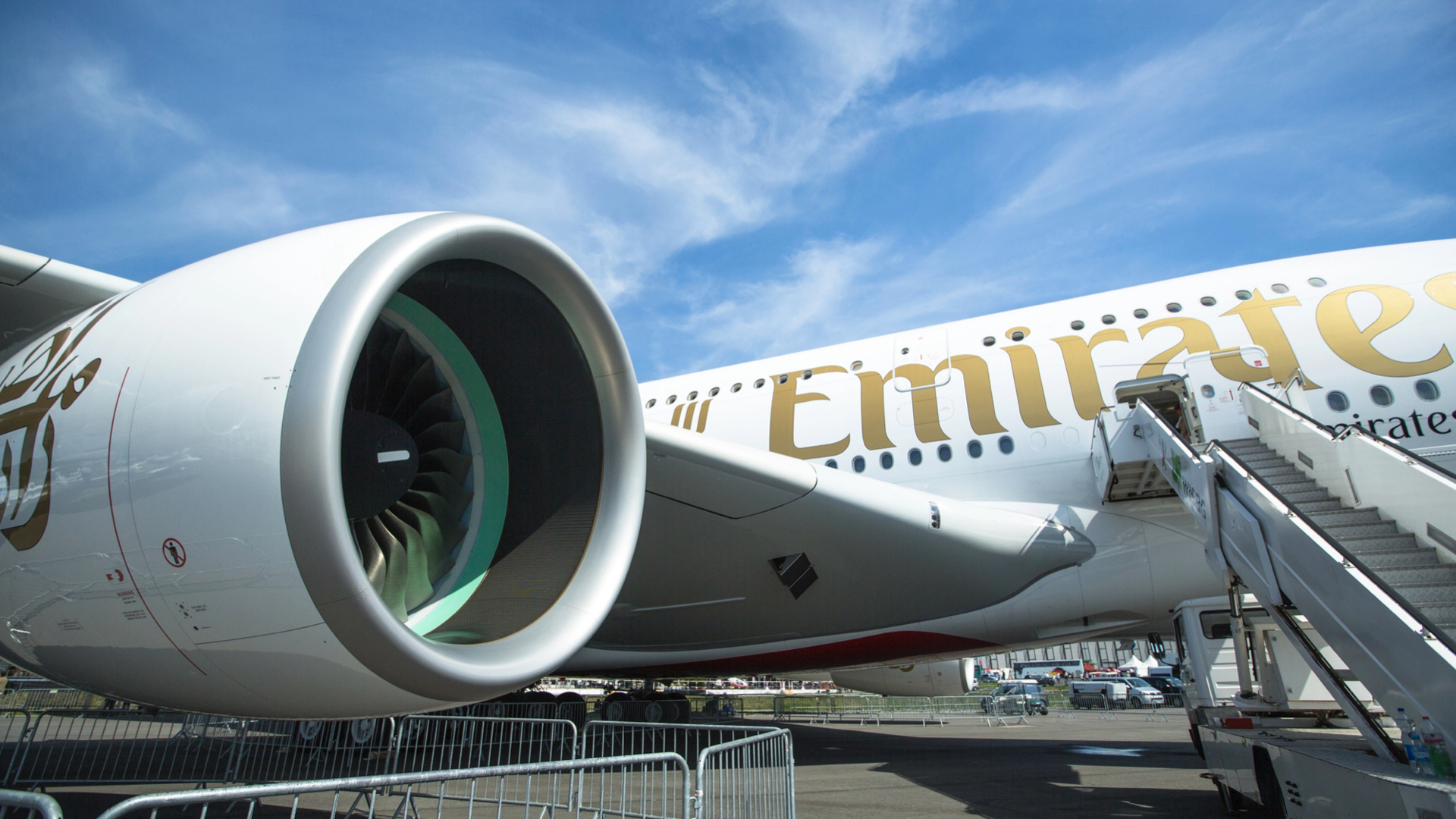
Try our newest merchandise
In a surprising accusation that has despatched shockwaves by the aviation business, Emirates President Sir Tim Clark has claimed that main US airways and Star Alliance members intentionally orchestrated the downfall of the Airbus A380 superjumbo to undermine Emirates’ aggressive benefit.
Talking on a current episode of The Air Present Podcast, Clark made the explosive allegation that there was a coordinated effort amongst rival carriers to keep away from buying the A380, in the end resulting in this system’s demise in 2021. The claims have reignited debate about business politics and the true causes behind the superjumbo’s business failure.
The Conspiracy Idea
Clark’s allegations middle on what he describes as a “clear mandate” throughout the Star Alliance to boycott the A380. “Within the time of the rift, there was a transparent mandate within the Star group, don’t purchase the A380, as a result of it offers immense energy to them. If we don’t purchase it, finally its demise will come about. And in reality, that’s what occurred,” Clark instructed the podcast.
The Emirates chief particularly focused American carriers, stating that “American carriers weren’t having something to do with it anyway, as a result of in these days, this was the weapon within the armory of Emirates, so it is advisable to cease utilizing them, as a result of that enables them to go to Airbus to construct increasingly and extra, so none of them purchased the airplane.”
Clark’s feedback check with the interval of heightened tensions between Gulf carriers and US airways, when American carriers accused Emirates, Qatar Airways, and Etihad of receiving unfair authorities subsidies—allegations that led to congressional hearings and commerce disputes.
Emirates’ A380 Dominance

The context for Clark’s claims lies in Emirates’ unprecedented success with the A380. The Dubai-based airline ordered 123 A380s, almost as many as all different operators mixed, making the superjumbo central to its hub technique and international enlargement.
Below Clark’s management, Emirates reworked the A380 from an plane right into a model image, that includes onboard bars, showers, and luxurious suites that set new requirements for premium air journey. Clark even took a shot at rivals, saying that Emirates “created a particular product onboard, whereas the interiors of different carriers’ A380s regarded like DC-10s.”
The plane grew to become Emirates’ “weapon” in competing towards conventional community carriers, permitting the airline to move large numbers of passengers between continents through its Dubai hub whereas providing an unmatched onboard expertise.
The Monetary Case for US Carriers
Clark argues that American airways missed a major alternative by avoiding the A380. He contended that carriers like United, American, or Delta might have operated the superjumbo profitably on routes resembling Los Angeles to Tokyo, asking “who might say to me you can fly from Los Angeles to Tokyo with the A380, whether or not United, American, or Delta, and never generate profits?”
The Emirates president means that US carriers’ enterprise fashions, which prioritize frequency over capability, led them to miss the A380’s potential on high-demand, long-haul routes the place airport slots are constrained.
Trade Skepticism
Aviation analysts have questioned Clark’s conspiracy principle, noting that “the A380 was by no means a pure match for U.S. or European community fashions.” Airways like Delta, United, and American have traditionally centered on high-frequency routes utilizing smaller, extra environment friendly plane, a technique that gives larger flexibility and higher yields, particularly in markets with seasonal demand.
The truth that main US carriers have additionally averted ordering Boeing’s 777X, one other very massive plane, suggests their reluctance could also be based mostly on operational issues relatively than any coordinated effort to hurt Emirates.
Market realities labored towards the A380’s unique premise, because the business developed towards point-to-point journey relatively than the hub-and-spoke mannequin that the superjumbo was designed to serve.
The Numbers Don’t Lie
The business failure of the A380 program helps a few of Clark’s broader factors, if not his conspiracy principle. Airbus constructed solely 251 A380s earlier than ending manufacturing in 2021, delivering plane to simply 14 airways. This system reportedly generated important losses for Airbus regardless of years of improvement and Emirates’ robust help.
Most operators struggled to make the A380 worthwhile exterior of particular route constructions. Even Lufthansa, one of many largest European operators, discovered restricted success with the kind in comparison with smaller, extra fuel-efficient options.
The Geopolitical Context
Clark’s allegations should be seen towards the backdrop of the extreme business and political battles between Gulf carriers and their Western rivals in the course of the 2010s. US airways, supported by their authorities, accused Emirates and different Gulf carriers of receiving billions in unfair subsidies, resulting in formal complaints and congressional hearings.
The tensions had been so extreme that Clark recalled some carriers telling Emirates: “There isn’t any level searching you; we should cope with you,” suggesting a shift from confrontation to cooperation in recent times.
The Trump administration in the end dismissed the subsidy complaints, and relationships have since improved. Emirates now has partnerships with United Airways, marking a dramatic change from the adversarial interval Clark references.
Present Trade Dynamics


The aviation panorama has modified dramatically for the reason that peak of the A380 program. Emirates is now diversifying its fleet with orders for 65 Airbus A350-900s, 30 Boeing 787s, and 205 Boeing 777Xs, acknowledging that even the world’s most profitable A380 operator wants smaller, extra environment friendly plane for a lot of routes.
Clark continues to advocate for a brand new massive plane, arguing that with out planes just like the A380 or Boeing 747, “rising fares” are inevitable as capability constraints pressure airways to make use of smaller plane on high-demand routes.
The Verdict: Conspiracy or Competitors?
Whereas Clark’s allegations make for compelling drama, business consultants recommend the truth is extra mundane. The A380’s failure doubtless resulted from a mix of things: altering airline enterprise fashions, improved effectivity of twin-engine plane, excessive working prices, and restricted route applicability exterior of particular hub operations.
As one business observer famous, Clark’s feedback “might be learn as equal elements problem and nostalgia, the voice of an govt who constructed an empire on a daring imaginative and prescient of aviation, solely to see the world transfer in a distinct path.”
Whether or not or not rival airways actively conspired towards the A380, this system’s demise has definitely weakened Emirates’ aggressive place. The airline should now compete with out its signature benefit, counting on operational excellence and repair high quality relatively than distinctive plane capabilities.
Legacy of the Superjumbo
Regardless of its business disappointment, the A380 stays beloved by passengers and represents an period when airways took daring technological bets. Emirates plans to function its A380 fleet effectively into the 2040s, making certain that Clark’s imaginative and prescient of extraordinary air journey will proceed for not less than one other 20 years.
Clark’s allegations, whether or not substantiated or not, spotlight the extreme aggressive pressures and geopolitical tensions that form the worldwide aviation business. In addition they function a reminder that in aviation, as in lots of industries, success usually relies upon as a lot on market timing and business politics as on engineering excellence.
For now, the A380 stays Emirates’ crown jewel, a testomony to Clark’s daring imaginative and prescient and an emblem of an period when the sky really gave the impression to be the restrict. Whether or not its demise was the results of market forces or business machinations might by no means be definitively confirmed, however the debate itself reveals the excessive stakes and intense rivalries that drive aviation ahead.







